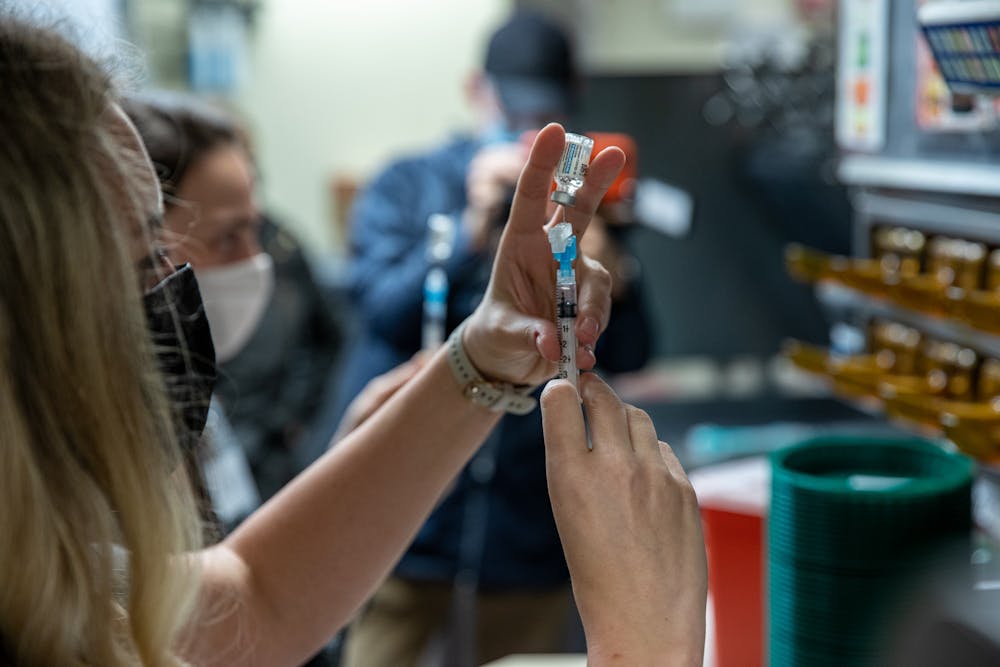In the last month, the Food and Drug Administration approved emergency use authorization of a supplemental third dose — also known as a booster shot — of the Pfizer-BioNtech, Moderna and Johnson & Johnson vaccines.
On Oct. 21, the Centers for Disease Control and Prevention also recommended these vaccinations and expanded eligibility. This made the Moderna and Pfizer vaccines available to people 65 and older, younger adults with medical conditions that put them at higher risk of severe COVID-19 and those who are work at locations with an increased risk. Johnson & Johnson is already available to anyone 18 and older.
People are eligible for Moderna and Pfizer booster shots six months after completion of their second shot, and Johnson & Johnson booster shots two months after the initial dose. If you don’t fall under any of these categories, you can expect the CDC to expand eligibility for you to get your booster shot within the next few months.
One of the main questions that has arisen since is whether or not to mix and match brands that are different from the original vaccine one received. To understand why you may want to do so, we break it down here:
How the vaccine works
All of the vaccines enable the immune system to make the spike protein from the SARS-CoV-2 virus — which enables the actual virus to invade cells and cause COVID-19. The immune system is then able to recognize these proteins, and generate an immune response against them.
When someone gets a booster shot, the immune system goes through a secondary immune response, which activates more rapidly with memory cells that were created in the first immune response. From there, more mature antibodies that are more effective at trapping the spike proteins are produced, and can then be activated when someone is exposed to COVID-19.
By getting a booster shot, your body is able to create a stronger and more effective defense against the coronavirus.



